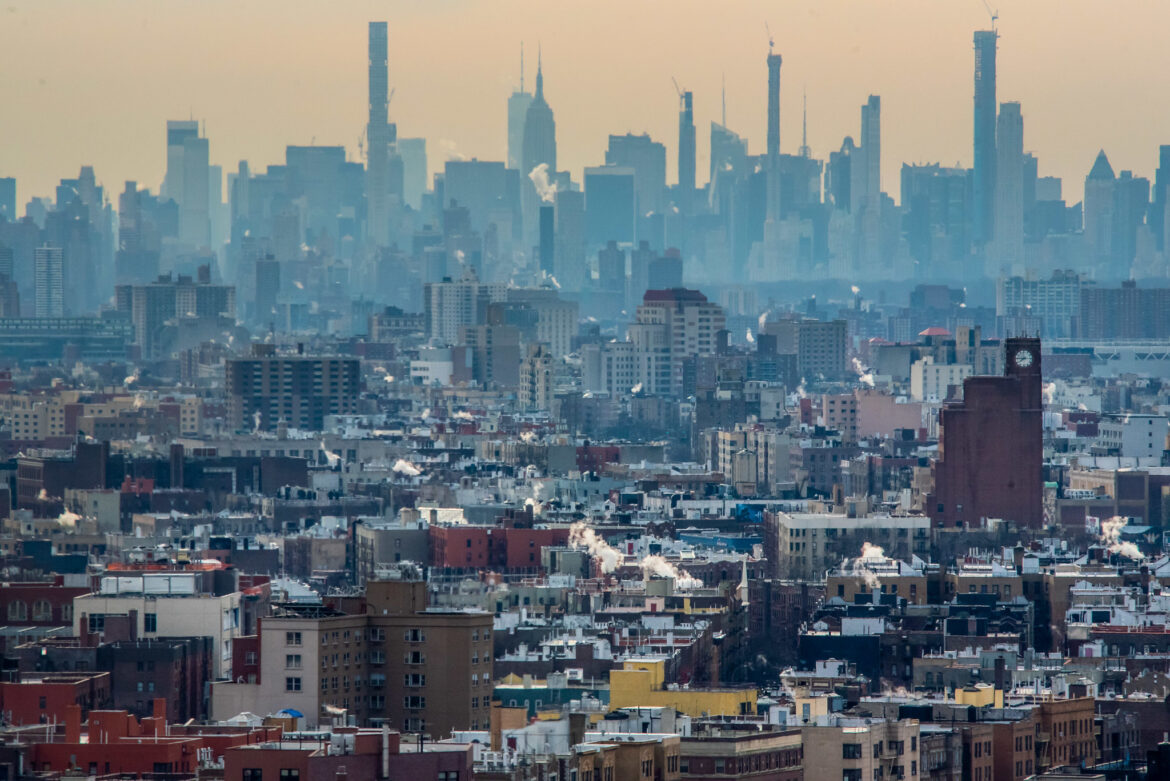“New housing production isn’t a solution if it doesn’t meet the needs of a majority of New Yorkers…Every neighborhood should and must be doing its part to produce affordable housing, not just market-rate housing, if we are going to turn the city’s housing crisis around.”

Michael Appleton/Mayoral Photography Office
You’re paying over half your monthly income in rent, your landlord won’t make repairs, and you’re already rooming with friends or family—your best option? Move. The problem is that moving isn’t a real option because almost no available apartments exist in your price range.
Sound familiar? If you are an average New Yorker, you’ve probably lived these experiences. That’s why we should all pay close attention to the City Council’s hearings this week on Mayor Eric Adams’ City of Yes Zoning for Housing Opportunity (ZHO) proposal. Councilmembers will have the unique opportunity to modify the proposal and increase affordability, particularly in neighborhoods that have not done their fair share in affordable housing creation and preservation. And the Council shouldn’t be afraid to jump at the chance.
The mayor’s City of Yes ZHO presents a golden opportunity to encourage more equitable housing development, making it easier to develop new housing across the city. That’s something New York City needs and ANHD supports. But the new proposal can do much more to ensure increased affordability and equitable access, especially for folks with lower incomes, which is without a doubt where New Yorkers’ greatest housing need lies.
New housing production isn’t a solution if it doesn’t meet the needs of a majority of New Yorkers. Over half of the city’s renter households earn under 50 percent of Area Median Income (AMI), or around $70,000 for a family of three. Those same renters represent over 75 percent of all rent-burdened households whose housing costs eat up over 30 percent of their income, and limit what they have to spend on groceries, clothing, schooling, and healthcare. These households need more affordable housing stock the most, but the current ZHO proposal won’t serve them.
City Council Speaker Adrienne Adams has already noted that “zoning reform alone…cannot address the wide-ranging housing needs of New Yorkers.” This is absolutely true, and we commend her and the Council for considering a more holistic approach that includes tenant and homeowner protections, infrastructure improvements, and funding for city agencies. But the Council must also ensure that the zoning itself maximizes affordable opportunities in all neighborhoods.
Every New York City neighborhood should and must be doing its part to produce affordable housing, not just market-rate housing, if we are going to turn the city’s housing crisis around. For higher-density districts, the Council should require a deeper affordability band in the Universal Affordability Preference and allow a larger density bonus for a larger share of affordable apartments across all medium- and high-density districts.
In lower-density areas, where there are currently no affordability requirements at all, the Council should modify both the Town Center Zoning and Transit Oriented Development proposals to require affordable units in buildings over 10 units, and remove zoning obstacles to help legalize the creation of basement apartments in small homes.
This is a racial equity issue as much as it is an economic one: the vast majority of lower-income, rent-burdened New Yorkers are households of color. When we don’t prioritize affordability, these are the people who are left behind—forever told to wait for the benefits of more market-rate housing to “trickle down” to them.
In order to advance fair housing goals, we must ensure that new zoning measures aren’t reinforcing existing disparities by exempting exclusionary neighborhoods from any requirements to incorporate affordable housing into local development.
With these changes, ZHO can be a valuable tool to help make New York City’s housing development more equitable and more oriented toward affordability. Without them, it will unfortunately be another missed opportunity to best use the city’s zoning to help solve our affordability crisis.
Barika Williams is the executive director at the Association for Neighborhood & Housing Development (ANHD).
